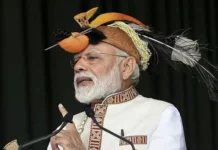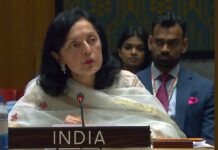
MUMBAI: Maintaining that there is a “prolonged” economic uncertainty in the US despite billions of dollars pumped in the world’s largest economy, a former Ambassador to America said here India was able to come out of the downturn in spite of a much smaller stimulus package.
Asian countries which were able to come out of the downturn relatively faster were China, which undertook huge domestic stimulus, and India, which announced small revival package, said Meera Shankar, who served as India’s Ambassador to the United States from 2009 to 2011.
“Today we see a prolonged economic uncertainty in the US and crisis in the eurozone,” Shankar said delivering a lecture on ‘Role of US in Asia-Pacific’, organized by the Observer Research Foundation (ORF).
The Indian stimulus in the face of the crisis was worth Rs 20,000 crore. The US, on the other hand, has so far pumped in or committed over USD 2 trillion to revive growth since the onset of global credit crisis in September 2008.
Shankar said Asian countries like China, India, South Korea and Indonesia have been displaying economic dynamism and achieving high growth despite the global downturn.
“The kind of action Government of India took was limited but more targeted because we didn’t had too much of fiscal space or resources to play around with. But, we were able to come back with 8 per cent growth after the crisis.
“Asia is home to some of the most dynamic economies and it will be a centre of renewed US engagement and focus.”
The US recognizes that its relationship with China is important but very complex, the Indian Forest Service officer said. “For the US, their relationship with China is perhaps the most important and also the most complex,” she said, adding engagements with Beijing would be an important part of American strategies.
On the defense front, Shankar said at present about 50 per cent of the US Naval resources are deployed in Asia and 50 per cent in the Atlantic.
Washington’s aim now is to bring this to 60-40 ratio – that is 60 per cent resource deployment in Asia-Pacific region and reduce presence in other areas, she added. -PTI






